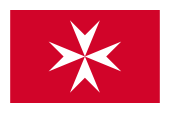
Handelsflagge,
Seitenverhältnis = 2:3,
Quelle, nach: Flags of the World



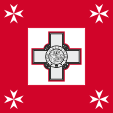
Gösch ,
Seitenverhältnis = 1:1,
Quelle, nach: Flags of the World



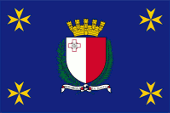
seit 1988,
Flagge des Präsidenten,
Seitenverhältnis = 2:3,
Quelle, nach: Flags of the World




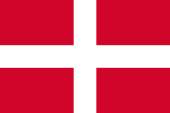
1530–1798,
Flagge von Malta (Malteserorden),
Quelle, nach: World Statesmen



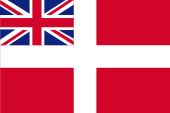
1814–1864,
inoffizielle Handelsflagge,
Quelle, nach: World Statesmen



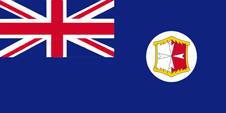
1875–ca.1898,
Flagge der Regierung (Staatsflagge),
Seitenverhältnis = 1:2,
Quelle, nach:
Flags of the World



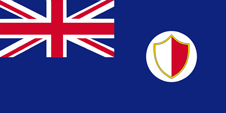
ca.1898–1923,
Flagge der Regierung (Staatsflagge),
Seitenverhältnis = 1:2,
Quelle, nach:
Flags of the World



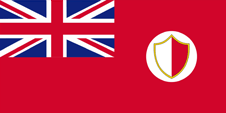
1921–1943,
Handelsflagge,
Seitenverhältnis = 1:2,
unsicher,
Quelle, nach:
Flags of the World, Flaggenbuch 1939



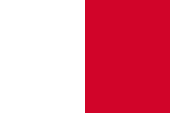
ca.1898–1943,
inoffizielle National- und Handelsflagge,
Quelle, nach:
Flags of the World



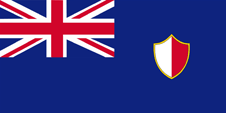
1923–1943,
Flagge der Regierung (Staatsflagge),
Seitenverhältnis = 1:2,
Quelle, nach:
Flags of the World



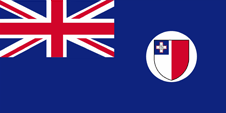
1943–1964,
Flagge der Regierung (Staatsflagge),
Seitenverhältnis = 1:2,
Quelle, nach:
Flags of the World



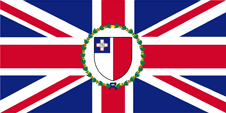
1943–1964,
Flagge des Gouverneurs,
Seitenverhältnis = 1:2,
Quelle, nach:
Flags of the World



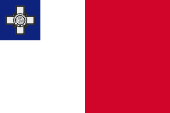
1943–1954,
inoffizielle National- und Handelsflagge,
Seitenverhältnis – ratio = 2:3,
Quelle, nach:
Flags of the World




1954–1964,
National- und Handelsflagge,
Seitenverhältnis – ratio = 2:3,
Quelle, nach:
Flags of the World



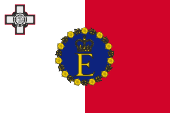
1967–1974,
Flagge der Königin,
Seitenverhältnis – ratio = 2:3,
Quelle, nach:
Flags of the World



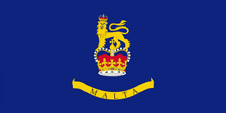
1964–1974,
Flagge des Generalgouverneurs,
Seitenverhältnis – ratio = 1:2,
Quelle, nach:
Flags of the World




Die Flagge Maltas ist weiß-rot senkrecht gestreift, mit einem rotgeränderten Georgskreuz im Obereck. Sie wurde in dieser Form erstmals offiziell anlässlich der Erlangung der Unabhängigkeit am 21.09.1964 gehisst. Die Farben Weiß und Rot gehen auf den Normannengrafen Roger II. (1095–1154) zurück, der die Insel im Jahre 1090 eroberte und von den Moslems befreite. Die Farben Weiß und Rot waren auf der Insel immer präsent und wurden wahrscheinlich ab 1898 als inoffizielle National- und Handelsflagge verwendet. In der britischen Kolonialzeit galt – jedoch nicht vor 1875 – die britische Dienstflagge, also ein Blue Ensign mit dem Badge der Inseln im fliegenden Ende der Flagge. Großbritannien hatte in Jahr 1864 ein Flaggensystem eingeführt, in dem:
• Kriegsschiffe einen sogenannten "White Ensign" (Marineflagge), eine weiße Flagge oft mit durchgehendem roten Georgskreuz und mit dem Union Jack in der Oberecke,
• Handelsschiffe einen "Red Ensign" (auch "Civil Ensign" → Bürgerflagge genannt, die eigentl. Handelsflagge), eine rote Flagge mit dem Union Jack in der Oberecke, und
• Dienstschiffe einen "Blue Ensign" (Regierungsflagge → die eigentl. Staatsflagge), eine blaue Flagge mit dem Union Jack in der Oberecke führten.
Seit 1865 durften Schiffe von Kolonialregierungen einen Blue Ensign mit einem Badge (Abzeichen) im fliegenden Ende führen. Die jeweiligen Regierungen sollten entsprechene Bagdes zur Verfügung stellen. Handelsschiffe und seefahrende Privatpersonen aus Kolonien dürfen nur dann einen Red Ensign mit Badge führen, wenn von der britischen Admiralität eine entsprechende Erlaubnis für die Kolonie erteilt wurde. Ab 1921 durfte angeblich auch ein Red Ensign verwendet werden. Ein Nachweis dafür ist nicht zu erbringen. Das Badge war ein weiß-rot gespaltener Schild auf einer weißen Scheibe. Im Jahre 1943 wurde Malta durch König Georg IV. das Georgskreuz als Anerkennung für die Tapferkeit der Malteser während der Bombardierungen im Zweiten Weltkrieg verliehen. Diese Auszeichnung wurde in einer blauen Oberecke auf dem Schild des Badges ergänzt. Die inoffizielle weiß-rote Flagge wurde darauf hin ebenfalls um die blaue Oberecke mit dem Georgskreuz ergänzt und ab dem 28.12.1943 so verwendet. Im Jahre 1954 soll diese Flagge offiziell zugelassen wurden sein. Als Malta am 21.09.1964 unabhängig wurde, wurde die blaue Oberecke entfernt, und das Georgskreuz zur besseren Sichbarkeit mit einem roten Rand versehen. Es gibt Darstellungen der Flagge mit einem flächig blau, hellblau oder silbern (hellgrau) gefüllten Georgskreuz, oder es wird auf die Darstellung der Details (Der Heilige Georg tötet den Drachen) im Inneren des Kreuzes verzichtet. Die Handelsflagge von Malta geht auf die Insignien des christlichen Johanniterordens (auch Malteserorden) zurück, der Inseln zwischen 1530 und 1798 beherrschte. Die Form des Kreuzes in der Flagge wird daher auch Malteserkreuz genannt. Zwischen 1964 und 1974 gehörte Malta nicht nur dem British Commonwealth of Nations an, sondern war auch keine Republik. Staatsoberhaupt war die britische Königin. Sie hatte in ihrer Funktion als maltesisches Staatsoberhaupt eine eigene Flagge.
Quelle:
Die Welt der Flaggen,
Flaggen Enzyklopädie,
Flags of the World,
Wikipedia (EN),
Volker Preuß


seit 1988,
Wappen von Malta,
Quelle:
Corel Draw 4
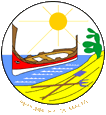
1975–1988
Wappen von Malta,
Quelle, nach:
Flaggen und Wappen

Das heutige Staatswappen erinnert an das im Jahre 1964 eingeführte Wappen. Dieses zeigte das weiß-rote (silbern-rote) Schild mit einer blauen Oberecke, und darin das Georgskreuz (→ siehe oben unter "Flagge"). Oberhalb ein goldener Helm mit weiß-roten Decken und einer goldenen Mauerkrone. Als Schildhalter dienten zwei Delphine. Unterhalb des Schildes erschien das Malteserkreuz sowie das Staatsmotto. Nachdem Malta 1974 Republik geworden war, meinte man ein neues Wappen einführen zu müssen. So wurde am 11.07.1975 ein Siegel als Staatswappen angenommen, das eine Küstenszene mit der aufgehenden Sonne zeigte, ein Fischerboot, eine Schaufel und eine Gabel. Darunter der neue Name des Staates: "Republikka Ta'Malta". Nach einem Machtwechsel wurde das Wappen am 19.10.1988 (nach anderen Quellen am 28.10.1988) erneut geändert. In seiner bis heute gültigen Form zeigt es wieder den weiß-roten Schild mit einem silbernen, rot umrandeten Georgskreuz im linken oberen Eck. Oberhalb des Schildes eine goldene Mauerkrone, und links und rechts des Schildes ein grüner Olivenzweig (links) und ein grüner Palmenzweig (rechts). Beide sind mit einem weißen Band verknüpft, welches als Inschrift den Namen des Staates trägt: "Republikka Ta'Malta".
Quelle:
Flaggen Wappen Hymnen,
Flaggen und Wappen der Welt,
Flaggen und Wappen,
Volker Preuß

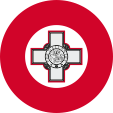
Flugzeugkokarde,
Quelle/Source, nach/by: Wikipedia (EN)

1980–1988,
Flugzeugkokarde,
Quelle/Source, nach/by: Wikipedia (EN)

Lage:
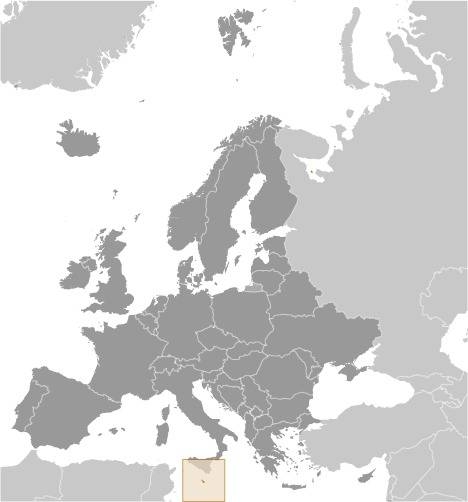
Quelle/Source: CIA World Factbook
Landkarte des Landes:
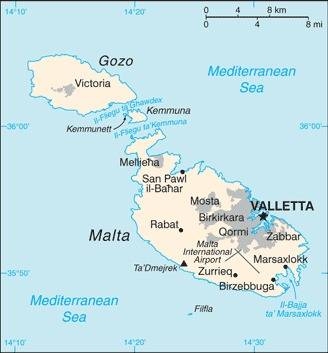
Quelle/Source: CIA World Factbook

Fläche: 316 km²
Einwohner: 519.562 (2021), davon 98% Malteser, 2% andere Europäer (Briten, Deutsche)
Religionen: 94% Katholiken, 4,5% Nicht-Religiöse
Bevölkerungsdichte: 1.644 Ew./km²
Hauptstadt: La Valetta, 5.827 Ew. (2018)
Amtssprachen: Maltesisch, Englisch
sonstige Sprachen: Italienisch
Währung: 1 Euro (€) = 100 Cent
Zeitzone: MEZ
Quelle:
Wikipedia (DE)

14. – 7. Jhd. v. Chr. · phönizische Siedlung
7. Jhd. v. Chr. · zum Reich von Karthago
218 v. Chr. · als "Melita" zum Römischen Reich
395 n. Chr. · bei der Teilung des Römischen Reiches kommt Malta an das Weströmische Reich
533 · zum Oströmischen Reich (Byzanz)
870 · Eroberung durch Araber, Islamisierung
1090 · Eroberung durch die Normannen (Graf Roger von der Normandie), zum Königreich Sizilien, Rechristianisierung
1530 · der christliche Johanniterorden erhält Malta als Lehen von Kaiser Karl V.
1798 · Eroberung durch Truppen Napoléons
1800 · Befreiung der Inseln durch britische Truppen und Truppen des Königreichs Neapel
1814 · Wiener Kongress, Malta kommt an Großbritannien, wird britische Kronkolonie
14.04.1921 · Verfassung, beschränkte Selbstverwaltung
1940–1943 · Zweiter Weltkrieg, umfangreiche Bombardierungen
1947 · innere Autonomie
21.09.1964 · Unabhängigkeit (im Rahmen des British Commonwealth of Nations)
13.12.1974 · Malta wird Republik, verbleibt jedoch im Commonwealth
1965 · Beitritt zum Europarat
1979 · die letzten britischen Truppen verlassen das Land
2004 · Aufnhame in die Europäische Union (EU)
Quelle:
Atlas zur Geschichte,
Wikipedia (D),
World Statesmen

Der Name "Malta" stammt vom lateinischen "Melita", und dieses Wort dürfte noch älter sein, denn es stammt vom indoarischen Wort "mel", was "hoch" bedeutet.
Quelle:
Handbuch der geographischen Namen


![]()

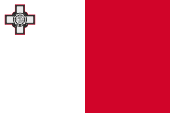
























![]()
